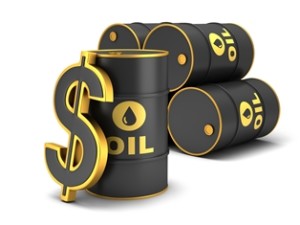
Crude oil prices fell more than 2 percent on Friday as Saudi Arabia and Russia said they were ready to ease supply curbs that have pushed crude prices to their highest since 2014.
The energy ministers of the two major producers met in the Russian city of St. Petersburg to review the terms of the global oil supply pact that has been in place for 17 months, ahead of a key OPEC meeting in Vienna next month.
The ministers, along with their counterpart from the United Arab Emirates, discussed an output increase of about 1 million barrels per day (bpd), sources told Reuters.
Brent crude futures were down $1.77 at $77.02 a barrel by 1330 GMT, having hit their highest since late 2014 at $80.50 this month.
U.S. West Texas Intermediate crude futures were at $68.84 a barrel, down $1.87.
The Organization of the Petroleum Exporting Countries (OPEC) and a group of non-OPEC producers led by Russia started withholding output in 2017 to tighten the market and prop up prices.
Global crude supplies have tightened sharply over the past year because of the OPEC-led cuts, which were boosted by a dramatic drop in Venezuelan production.
But the near-doubling in oil prices over the past year has sparked concerns among top consuming nations such as China and India that the rally could weigh on economic growth.
OPEC Secretary-General, Mohammad Barkindo said the idea of increasing output came following a critical tweet from U.S. President Donald Trump, who said last month that OPEC had “artificially” boosted oil prices.
Speaking in St. Petersburg, Saudi Energy Minister, Khalid al-Falih, whose country is the de facto leader of OPEC, said any easing of restrictions on pumping levels would be gradual to avoid a shock to the market.
“The debate about a possible relaxation of the production restrictions should preclude any renewed price rise,” Commerzbank analysts said.
“The $80 mark is likely to pose an obstacle that is difficult to overcome because it would significantly raise the probability of a production increase.”
The prospect of renewed sanctions on Iran after Trump pulled out of an international nuclear deal with Tehran has further boosted prices in recent weeks.
Chief Oil Analyst at Consultancy Energy Aspects, Amrita Sen, said: “Addressing over-compliance was always likely to be on the agenda amid a tight market and low inventories, but the volume to bring back is still up for debate.”
Agency Report
